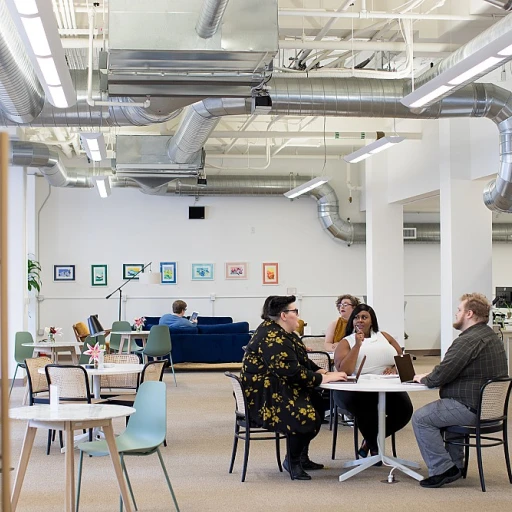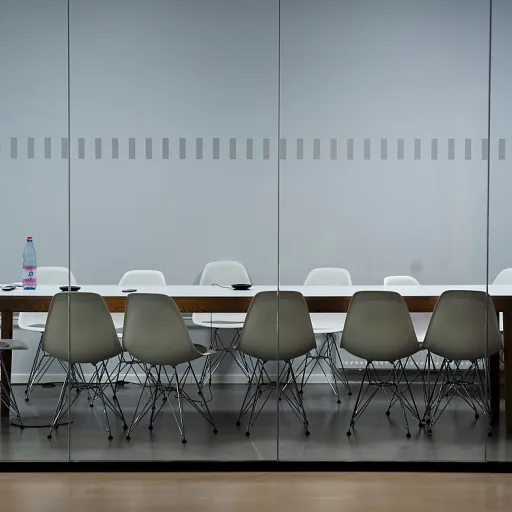
Understanding the Role of a Skills Development Facilitator
The Crucial Contribution of Development Facilitators
In the intricate landscape of change management, a skills development facilitator (SDF) plays a pivotal role. This position is essential for guiding the organization through the nuances of change, ensuring that every employee is equipped with the necessary skills and tools. Development facilitators possess a unique ability to understand and communicate the complex aspects of skill development, serving as the linchpin between employees and management.
Understanding a facilitator's responsibilities is crucial as they navigate the dynamic environment of change within various sectors, including workplace skills, education training, and learning interventions. Their work becomes even more significant in regions like South Africa, where skills gaps can impact career growth if not addressed through targeted training programs.
The primary focus for these facilitators is assessing and addressing skill gaps within the workforce. By implementing tailored development programs, they ensure continuous improvement in career development and organizational effectiveness. Moreover, their role includes designing development training and facilitating education that aligns with the organization’s goals.
Facilitators employ a range of strategies to ensure success in their roles. They operate as career counselors, helping employees identify areas for personal and professional growth, and they support the implementation of training certification and other programs that enhance workplace culture and productivity.
Those interested in enhancing their understanding of this role might explore effective training modalities to amplify their facilitation prowess further. Embodying both soft skills and technical knowledge, these facilitators stand at the forefront of promoting a paper-free and adaptive organizational environment, ready to evolve with the times.
Key Skills for Facilitating Change
Essential Competencies for Change Facilitation
Facilitating change within an organization is no small feat and requires a particular set of skills to navigate effectively. Developing these skills is crucial for any skills development facilitator (SDF) aiming to support a team through transitions while fostering continuous improvement. Understanding the critical skills in facilitating change is paramount.
- Communication Skills: Clear, concise communication is essential to articulate the objectives, benefits, and processes of change initiatives. This includes both verbal and written communication.
- Emotional Intelligence: Recognizing and managing not only one's emotions but also understanding the emotional dynamics of employees going through change is crucial. It helps in maintaining a supportive workplace culture.
- Problem-Solving Abilities: Change often presents unexpected challenges. Facilitators must be equipped to address these hurdles with effective problem-solving training techniques.
- Leadership Skills: Inspiring and motivating team members through change is an invaluable asset. Facilitators who can instill a sense of shared vision are often more successful in their roles.
- Adaptability and Flexibility: Change is dynamic; facilitators must be willing to adapt and adjust strategies to meet evolving needs.
- Conflict Resolution: Change can lead to conflicts. Effective facilitators use skills to diffuse tension and guide productive dialogues.
- Strategic Thinking: The ability to see the big picture and align change initiatives with organizational goals ensures that change efforts are not only implemented but sustainable.
These core skills support the successful implementation of development programs and learning interventions, crucial for addressing skill gaps. Moreover, these competencies lay the groundwork for meaningful career development and pave the way for enhanced training and education initiatives in the workplace.
Challenges Faced by Skills Development Facilitators
Overcoming Challenges in Skills Development Facilitation
Facilitating skills development is no walk in the park. Skills development facilitators (SDFs) often encounter several hurdles in their journey to empower employees and facilitate positive change within the workplace. Understanding these challenges is crucial for addressing and overcoming them effectively. One of the primary challenges is identifying and closing skill gaps. SDFs must discern which skills are missing or lagging among employees and tailor education training programs accordingly. This requires acute awareness and understanding of the organization's needs and the individual aspirations of employees. Another hurdle is maintaining employee engagement in learning programs. Often, employees may perceive development training as a burdensome task, especially if the workplace culture doesn't prioritize continuous improvement and personal growth. Facilitators need to find innovative ways to integrate learning interventions that align with both individual career development goals and organizational objectives. Resource limitations can also impede the effectiveness of facilitation. Whether it's budget constraints or a lack of access to updated training certification resources, facilitators must navigate these challenges to deliver impactful education and development programs. Moreover, navigating cultural barriers within the workplace can be daunting. The diversity of backgrounds and learning preferences may require SDFs to adapt training modalities to ensure inclusivity and effective learning for all employees. Finally, fostering an environment of trust and openness is essential, yet it can be challenging to achieve. Facilitators need to cultivate a supportive atmosphere where employees feel comfortable expressing their training needs and career aspirations without fear of judgment. Addressing these challenges with strategic solutions will not only enhance skill development programs but also contribute significantly to effective change management. For deeper insights on the essential skills required for facilitators in change, you can continue reading about this here.Strategies for Effective Skills Development
Tactics for Advancing Skills in the Workplace
In the dynamic realm of change management, the role of skills development facilitators is pivotal in nurturing an adaptive and proficient workforce. With businesses and industries in a constant state of flux, development training has become more than just an option—it's a necessity. Let's explore some key strategies that can be employed to ensure effective skills development, facilitating not only career growth but also a seamless transition during change initiatives.
- Identify and Bridge Skills Gaps: The first step towards effective skills development is identifying the existing skill gaps within the workforce. A comprehensive skills audit can unveil these gaps, allowing development facilitators to tailor training programs that specifically address them. This targeted approach ensures that employees receive the training that matters most, which is essential for both personal career advancement and organizational success.
- Customized Training Programs: One size does not fit all when it comes to training programs. Facilitators should design development programs that are personalized to the specific needs and learning styles of employees. Customized training not only ensures relevance but also enhances employee engagement and motivation, fostering a culture of enthusiastic learning within the workplace.
- Implement Continuous Learning Interventions: In the pursuit of continuous improvement, it is crucial for organizations to create opportunities for ongoing education and growth. By incorporating regular learning interventions, such as workshops, seminars, and on-the-job training, employees can continually refine their skills and adapt to emerging challenges in the workplace.
- Encourage a Culture of Learning: Establishing a workplace culture that values learning can significantly boost the effectiveness of skills development initiatives. Encouraging employees to take ownership of their learning journeys by offering career counseling and support for further education training can foster a committed and highly skilled workforce.
- Promote Soft Skills Development: While technical skills are essential, soft skills often play a crucial role in successful change management. Facilitators should emphasize the development of soft skills such as communication, adaptability, and teamwork. These capabilities are critical for navigating the complexities of change and ensuring the integrated success of organizational transformations.
- Leverage Digital Tools for Paper Free Training: By employing digital platforms and tools, facilitators can conduct paper free training sessions that are not only environmentally friendly but also highly interactive and engaging. Online training certification programs can provide employees with the credentials needed to advance their careers and meet industry standards.
Ultimately, implementing these strategies effectively requires a strategic approach and a commitment to facilitating career development through well-structured education training initiatives. Skills development facilitators play an integral role in guiding this process, ensuring that employees are equipped with the necessary capabilities to thrive in today's ever-changing work environment.
The Impact of Effective Facilitation on Change Management
Positive Outcomes of Effective Facilitation
Effective facilitation in change management can significantly impact an organization’s ability to adapt and thrive in a dynamic environment. When skills development facilitators (SDFs) successfully bridge skill gaps, they empower employees to embrace change with confidence. This empowerment leads to a more agile workplace culture, where employees are not only prepared for change but are also active participants in the transformation process.
Enhancing Employee Engagement and Morale
When employees see that their career development is a priority, their engagement and morale tend to increase. Facilitators play a crucial role in this by implementing development programs that align with both organizational goals and individual career aspirations. This alignment fosters a sense of belonging and purpose among employees, which is essential for maintaining a motivated workforce during times of change.
Driving Continuous Improvement
Continuous improvement is a hallmark of successful change management. By focusing on skills development and training, facilitators ensure that employees are equipped with the necessary tools to contribute to ongoing improvements. This focus on continuous learning and growth not only enhances individual capabilities but also drives organizational success. Development training and learning interventions become integral parts of the workplace, promoting a culture of innovation and adaptability.
Building a Resilient Workforce
In a rapidly changing world, resilience is key. Effective facilitation helps build a workforce that is resilient to change by providing education and training that prepare employees for future challenges. By addressing skill gaps and offering career counseling, facilitators ensure that employees are ready to tackle new roles and responsibilities as they arise, thereby supporting the organization’s long-term success.
Future Trends in Skills Development for Change Management
Adapting to Emerging Trends in Skills Development
As organizational landscapes continue to shift and evolve, the approach to skills development, particularly within the realm of change management, must adapt to these transformations. Understanding the emerging trends in this field is crucial for both skills development facilitators and the organizations they serve.
Continuous Learning and Flexibility
One of the prevailing trends is the emphasis on continuous learning and flexibility. Instead of one-off training sessions, there is an increasing shift towards creating environments that support ongoing education. This trend aligns with the necessity to fill skills gaps quickly and efficiently, enabling employees to respond to change as it happens.
Embracing Technology and Digital Learning
The digital transformation of training methods is another significant trend, with technology playing a central role in educational programs. Digital learning tools, such as virtual reality and online platforms, offer interactive and adaptable learning experiences. These tools enable development facilitators to offer personalized development paths and track progress more effectively.
Focus on Soft Skills and Emotional Intelligence
Another key focus is the development of soft skills and emotional intelligence. Increasingly, employers recognize that effective change management relies heavily on building strong interpersonal skills among employees. Programs that cultivate empathy, communication, and problem-solving are garnering more attention.
Integrating a Culture of Continuous Improvement
Finally, instilling a culture that prioritizes continuous improvement and lifelong learning is becoming a best practice. Organizations are embedding skills development processes into their workplace culture, creating a supportive environment that encourages ongoing personal and professional growth.
These trends highlight the evolving nature of skills development in change management. By adapting to these changes, organizations ensure they remain competitive, employees continue to grow in their careers, and facilitation processes become more effective and aligned with contemporary needs.













